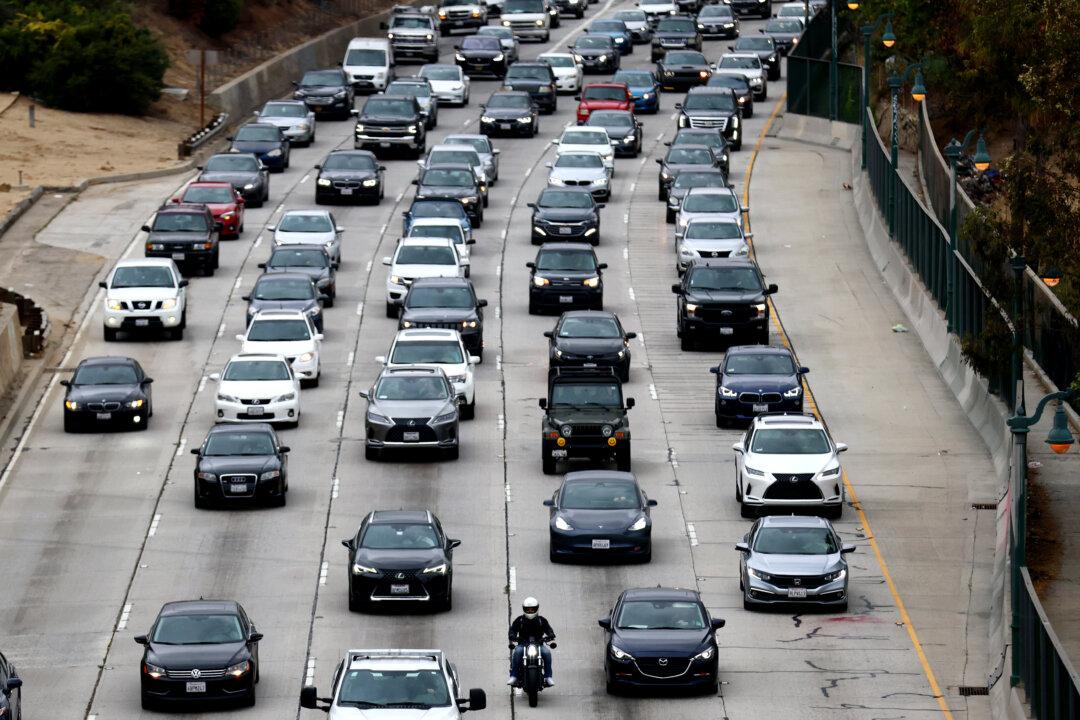The U.S. Senate has decided to discuss a resolution that would roll back California’s stringent vehicle emission standards mandating the phasing out of gas-powered cars.
Senate Votes to Consider Repealing California’s Rule Phasing Out Gas Vehicles
The rule imposes ‘costly and unrealistic mandates’ on small businesses, warned a business group.

Vehicles make their way down the 110 freeway toward downtown Los Angeles during the morning commute on April 22, 2021. Mario Tama/Getty Images




